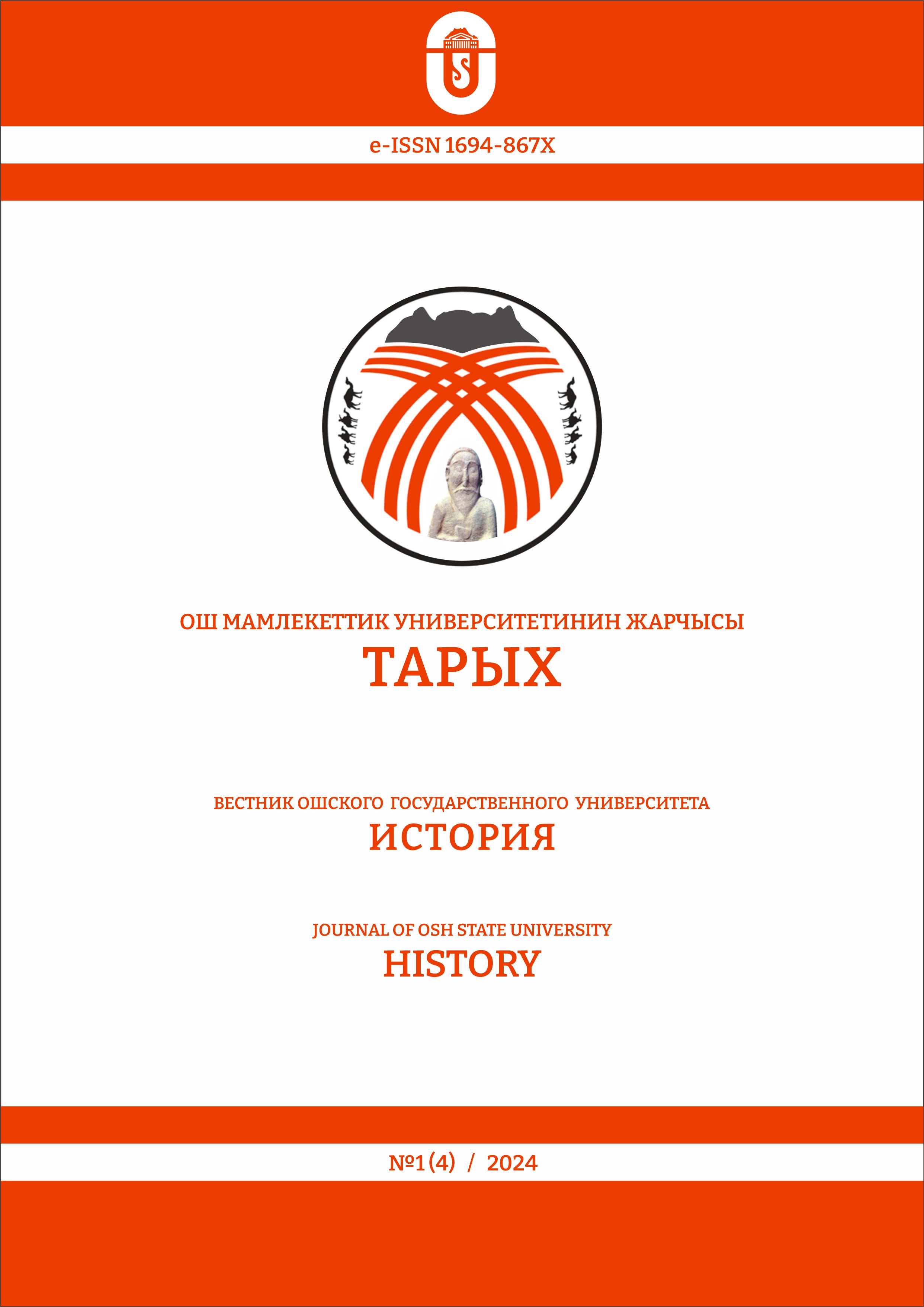POLITICAL DEVELOPMENT OF THE KOKAND KHANATE
DOI:
https://doi.org/10.52754/1694867X_2024_1(4)_34Keywords:
Kokand Khanate, political instability, foreign policy, Fergana, Islam, power, revolution, diplomacy, separatist tendencyAbstract
The article discusses the emergence of the Kokand Khanate, its internal and foreign policies, political crises in the country and other issues. The authors made an attempt to reveal the essence of the problem, using the works of domestic and foreign scientists, as well as historical sources. It describes in detail the main reasons for political instability in the country and the aggressive policies of other states. In the second half of the 18th century, the formation of a unified state contributed to political, socio-economic and cultural development. In the 19th century . The Kokand Khanate gradually became the largest geopolitical force in the region, and East Turkestan also found itself in its sphere of influence. The Kokand Khanate played an important role in international relations. His control over the Great Silk Road connecting East and West had a huge impact on trade and economic development. But internal strife in the khanate, the struggle for power, the influence of external forces and other factors gradually weakened the state and prevented its independent existence.
References
Андреев А.И. Труды Г. – Ф.Миллера о Сибири // Миллер Г. – Ф. История Сибири. – М., 1999. Т. 1. – С. 66, 133.
Кыргызстандын эң байыркы мезгилдериден XIX кылымдын соңуна чейинки тарыхы. – Бишкек,1998. – 207.б.
Бабабеков Х.Н. Народные движения в Кокандском ханстве и их социально-экономические и политические предпосылки (XVIII-XIXвв.). – Ташкент, 1990.
Кыргыз ССР тарыхы. – Фрунзе, 1973. – 267-б.
Кун А.Л. Очерк Коканского ханства // Известия Императорского Русского географического общества. Т. XII, отдел 2. 1876. СПб, – С.58
Наливкин В. Краткая история Кокандского ханства. – Казань, 1886. – С.171-172.
О.Осмонов. Кыргызстан тарыхы. – Б., 2000. 53-б.
Плоских В.П. Кыргызы и Кокандское ханство. – Ф., 1977. – С. 70.
Плоских В.М., Мокрынин В.П. История кыргызов (досоветский период). – Бишкек, 1992. – С. 77, 103.
Халфин Н.А. Присоединение Средней Азии к России, 60-е г. XIX века. – М., «Наука», 1965. – 337 с.
Хасанов А.Х. Народные движения в Киргизии в период Кокандского ханства. – Москва, 1977. – С.20.
Распространение ислама у кыргызов / М. А. Закиров, А. С. Закирова, Р. К. Сабиров, М. И. Чыналиева // Вестник Ошского государственного университета. История. – 2022. – № 1. – С. 38-47. – DOI 10.52754/1694867X_2022_1_5. – EDN VGAVNC.
Кубанычбек Кызы, А. “Манас” эпосунда көчмөн турмуштун сүрөттөлүшү / А. Кубанычбек Кызы // Ош мамлекеттик университетинин Жарчысы. Филология. – 2023. – No. 2(2). – P. 41-48. – DOI 10.52754/16948874_2023_2(2)_5. – EDN UIVPTC.
Султанова, М. Ш. XIX кылымдын экинчи жарымы XX кылымдын башындагы акындардын чыгармаларындагы тарыхый окуялардын чагылдырылышы / М. Ш. Султанова, Г. Абсамат Кызы // Вестник Ошского государственного университета. – 2021. – Vol. 2, No. 4. – P. 1107-1113. – DOI 10.52754/16947452_2021_2_4_1107. – EDN EFTLDV.
Downloads
Published
How to Cite
Issue
Section
License
Copyright (c) 2024 Journal of Osh State University. History

This work is licensed under a Creative Commons Attribution-NonCommercial 4.0 International License.

